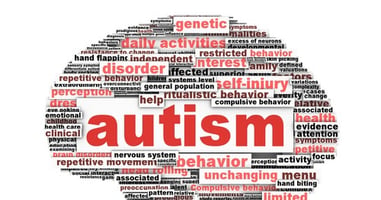Most children who have received a diagnosis of either autism, Asperger’s, or pervasive...
Study Identifies Risk Factors Linked to Suicide Attempt After Depression Diagnosis

Soldiers who receive a diagnosis of bipolar disorder or traumatic stress on the same day they receive their first diagnosis of depression are more likely to attempt suicide in the next 30 days, according to a report in BMC Psychiatry. However, soldiers who received a diagnosis of depression and a sleep disorder on the same day are much less likely of an imminent suicide attempt.
“Identifying individuals at imminent SA [suicide attempt] risk is a difficult and important clinical task when depression is diagnosed,” wrote Holly Herberman Mash, Ph.D., of the Uniformed Services University of the Health Sciences and colleagues. “This is particularly important in the military, given that suicide has been increasing, despite efforts to reduce its prevalence.”
Mash and colleagues made use of data from the Army Study to Assess Risk and Resilience in Servicemembers (STARRS), which maintains medical and administrative records of over 900,000 enlisted soldiers. For this analysis, they tracked the outcomes of 101,046 active-duty enlisted soldiers (78% male) from 2010 to 2016 with no history of suicidal ideation who received their first official diagnosis of major depressive disorder.
Of this group, 421 soldiers attempted suicide within 30 days of an diagnosis of depression. The researchers examined a host of sociodemographic, job-related, and psychiatric variables to see which ones influenced this risk. Their final model identified several risk factors, including the following:
- Having less than high school education (1.5-fold increased odds)
- Being a combat medic (1.5-fold increased odds)
- Same-day diagnosis of major depression and bipolar disorder (3.1-fold increased odds)
- Same-day diagnosis of major depression and traumatic stress (2.6-fold increased odds)
- History of alcohol use disorder (1.4-fold increased odds)
- History of somatoform/dissociative disorders (1.7-fold increased odds)
The researchers also identified a few traits associated with reduced odds of an imminent suicide attempt, including being married, being in the military for 10 or more years, and being diagnosed with both major depression and a sleep disorder.
“Soldiers with [major depression and no prior suicide ideation] are already identified in the health care system and therefore can be offered evidence-based interventions tailored to their risks,” Mash and colleagues wrote. “The current study findings are important in identifying those at greatest risk and inform timely and appropriate clinical decisions and interventions. [Suicide attempts] might be reduced by as much as one-quarter if we could intervene with this group and reduce their risk from high- to medium-risk level.”
To read more on this topic, see the Psychiatric Services article “Army STARRS Study Finds Risks to Progression From Suicidal Ideation to Attempts..”
Psychiatric News Invites Applications for
Medical Editor-in-Chief
APA members who have administrative experience, are passionate about disseminating news in the field of psychiatry, and are knowledgeable about print and digital communications are invited to apply. The deadline for applications, which should include a vision statement and a curriculum vitae, is July 19, 2023.





